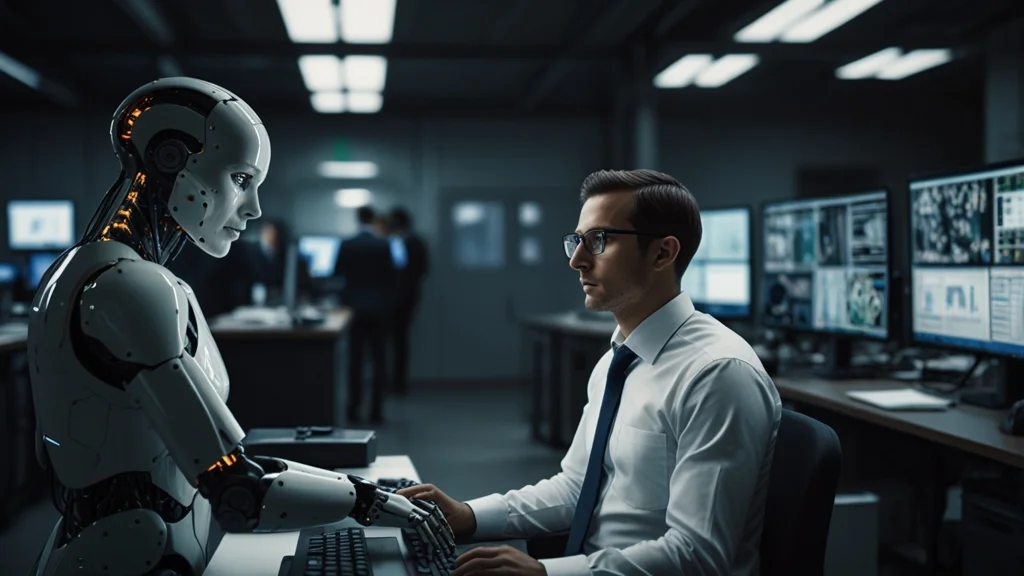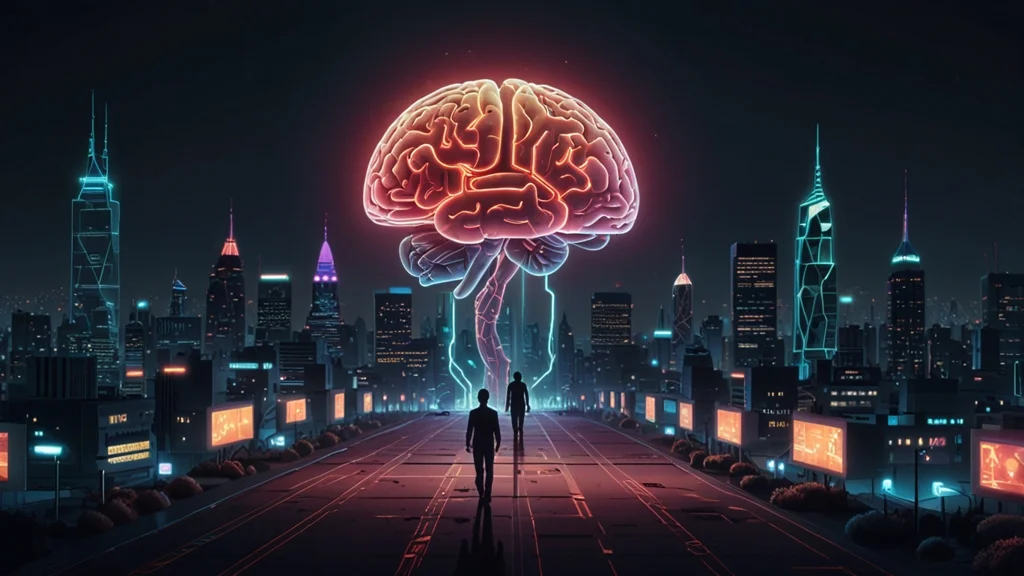Artificial Intelligence (AI) is transforming our world in ways we never imagined. From healthcare to education, AI in society is reshaping how we live, work, and interact. It increases efficiency, improves decision-making, and enhances daily life. However, it also raises concerns about job loss, privacy, and ethical risks. In this article, we’ll explore the pros and cons of AI in society to help you understand its impact on our daily lives.
What Is AI?
AI refers to machines that can think, learn, and make decisions like humans. These systems use data and algorithms to perform tasks efficiently. AI powers voice assistants like Siri, chatbots, recommendation systems, and even self-driving cars. But is AI always beneficial, or does it have drawbacks? Let’s dive in.
Read more : Top 5 Free Text-to-Speech Tools in 2025

Pros of AI in Society
1. Makes Life Easier
AI simplifies daily tasks, reducing human effort. Smart home devices adjust lights, control temperature, and automate security. Virtual assistants like Alexa help with reminders, schedules, and entertainment. These AI-powered tools save time and enhance convenience.
2. Improves Healthcare
AI is transforming healthcare by assisting doctors in diagnosing diseases faster and more accurately. AI-powered tools analyze medical images to detect conditions like cancer at an early stage. AI also helps in drug development, robotic surgeries, and remote patient monitoring. This leads to better treatment and saves lives.
3. Boosts Productivity
AI automates repetitive tasks, allowing employees to focus on creative and strategic work. For example, chatbots handle customer queries, freeing up human agents for complex issues. In manufacturing, AI-powered robots speed up production while minimizing errors.
4. Enhances Education
AI personalizes learning experiences based on students’ needs and progress. Educational platforms like Duolingo and Khan Academy use AI to create interactive lessons. AI tutors provide instant feedback, making learning more engaging and effective.
5. Reduces Human Error
AI performs tasks with precision, reducing human mistakes. In fields like finance, AI detects fraudulent transactions. In transportation, self-driving cars use AI to avoid accidents. This improves safety and reliability.
6. Strengthens Security
AI enhances cybersecurity by detecting threats in real-time. It identifies unusual patterns in online activities and prevents cyberattacks. AI-powered facial recognition also helps in law enforcement and fraud detection.
Read more : Chinese AI: DeepSeek and the Future of AI Innovation

Cons of AI in Society
1. Job Losses
Automation is replacing human jobs in industries like manufacturing, retail, and customer service. AI-driven robots work faster and don’t require breaks, making them cost-effective for businesses. However, this leads to unemployment and economic inequality.
2. Privacy Concerns
AI systems collect vast amounts of personal data from social media, online searches, and smart devices. Companies use this data for targeted advertising and decision-making. However, without proper regulations, AI can invade privacy and misuse sensitive information.
3. High Costs
AI development and maintenance require significant investment. Small businesses and developing countries may struggle to afford AI-powered systems. This creates a gap between technology-rich and technology-poor regions.
4. Lack of Human Touch
AI lacks emotions and empathy, which are crucial in areas like healthcare and customer service. Patients may feel disconnected when interacting with AI-driven health chatbots instead of human doctors. In customer support, automated responses may frustrate users who need personalized solutions.
5. Ethical Issues and Bias
AI systems learn from data, and if that data contains biases, AI decisions can be unfair. For example, some facial recognition tools have been shown to misidentify people of certain ethnic backgrounds. AI can also lead to biased hiring decisions or discriminatory law enforcement practices.
6. Security Threats and Misuse
AI can be used for harmful purposes, such as deepfake technology, cyberattacks, and AI-driven surveillance. Hackers can manipulate AI systems, spreading misinformation or conducting fraudulent activities. Without strict security measures, AI poses risks to society.
Read more : Qwen2.5: A Powerful AI Model by Alibaba

Balancing the Pros and Cons
AI in society is a double-edged sword. While it offers incredible benefits, it also comes with significant challenges. To maximize AI’s potential while minimizing risks, society must take action in several key areas.
1. Regulation and Policies
Governments should create laws to ensure AI is used ethically. Strong data privacy regulations can protect users from data misuse. AI should be monitored to prevent discrimination and bias.
2. Education and Training
As AI reshapes the job market, workers need reskilling programs. Governments and companies should invest in AI education to prepare people for future jobs. Learning AI-related skills can help workers adapt to changes.
3. Transparency and Accountability
Companies must be transparent about how AI algorithms work. AI decisions should be explainable, ensuring fairness in hiring, lending, and law enforcement. Holding companies accountable for AI-driven mistakes is essential.
4. Collaboration for Responsible AI
AI should be developed responsibly, with input from governments, researchers, businesses, and ethical experts. Collaboration can ensure AI benefits all of society rather than a select few.

The Future of AI in Society
The future of AI in society is exciting and uncertain. The pros and cons of AI in society must be carefully evaluated. AI has the potential to solve major global issues, such as climate change and healthcare shortages. AI-powered research can predict natural disasters, optimize energy use, and find cures for diseases.
However, if not handled appropriately, AI can result in more surveillance, data breaches, and job displacement. The way forward is to balance the advantages and risks of AI. Ethical AI development will determine a future where AI is in service to humanity, not the other way around.
Conclusion
AI in society is here to stay. The pros and cons of AI in society must be carefully considered. Its advantages, like improving healthcare, increasing productivity, and enhancing education, are undeniable. However, its drawbacks, including job loss, privacy concerns, and ethical risks, cannot be ignored.
To harness AI’s power responsibly, governments, businesses, and individuals must work together. Regulations, transparency, and ethical AI development will ensure AI benefits everyone. Technology should serve humanity, not replace it.
What are your thoughts on AI in society? Do the pros outweigh the cons? Share your views in the comments below!




